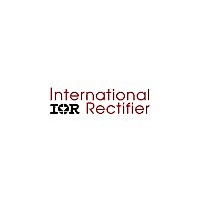IRDC3841 International Rectifier, IRDC3841 Datasheet - Page 11

IRDC3841
Manufacturer Part Number
IRDC3841
Description
BOARD EVAL SYNC BUCK CONVERTER
Manufacturer
International Rectifier
Specifications of IRDC3841
Silicon Manufacturer
International Rectifier
Kit Contents
Board
Features
Compact, High Performance And Flexible Solution, 600kHz Frequency
Svhc
No SVHC (15-Dec-2010)
Core Architecture
Power Management -
Rohs Compliant
No
Circuit Description
THEORY OF OPERATION
Introduction
The IR3841 uses a PWM voltage mode control
scheme with external compensation to provide
good noise immunity and maximum flexibility in
selecting inductor values and capacitor types.
The switching frequency is programmable from
250kHz to 1.5MHz and provides the capability of
optimizing the design in terms of size and
performance.
IR3841 provides precisely regulated output
voltage programmed via two external resistors
from 0.7V to 0.9*Vin.
The IR3841 operates with an external bias
supply from 4.5V to 5.5V, allowing an extended
operating input voltage range from 1.5V to 16V.
The device utilizes the on-resistance of the low
side MOSFET as current sense element, this
method enhances the converter’s efficiency and
reduces cost by eliminating the need for external
current sense resistor
IR3841 includes two low R
IR’s HEXFET technology. These are specifically
designed for high efficiency applications.
Under-Voltage Lockout and POR
The under-voltage lockout circuit monitors the
input supply Vcc and the Enable input. It assures
that the MOSFET driver outputs remain in the off
state whenever either of these two signals drop
below the set thresholds. Normal operation
resumes once Vcc and Enable rise above their
thresholds.
The POR (Power On Ready) signal is generated
when all these signals reach the valid logic level
(see system block diagram). When the POR is
asserted the soft start sequence starts (see soft
start section).
Enable
The Enable features another level of flexibility for
start up. The Enable has precise threshold which
is internally monitored by Under-Voltage Lockout
(UVLO) circuit. Therefore, the IR3841 will turn on
only when the voltage at the Enable pin exceeds
this threshold, typically, 1.2V.
06/18/09
.
ds(on)
MOSFETs using
If the input to the Enable pin is derived from the
bus voltage by a suitably programmed resistive
divider, it can be ensured that the IR3841 does
not turn on until the bus voltage reaches the
desired level. Only after the bus voltage reaches
or exceeds this level will the voltage at Enable
pin exceed its threshold, thus enabling the
IR3841. Therefore, in addition to being a logic
input pin to enable the IR3841, the Enable
feature, with its precise threshold, also allows the
user to implement an Under-Voltage Lockout for
the bus voltage V
for high output voltage applications, where we
might want the IR3841 to be disabled at least
until V
Figure 3b. shows the recommended start-up
sequence for the non-sequenced operation of
IR3841, when Enable is used as a logic input.
Fig. 3b. Recommended startup sequence,
Fig. 3a. Normal Start up, Device turns on
in
when the Bus voltage reaches 10.2V
exceeds the desired output voltage level.
Non-Sequenced operation
in
. This is desirable particularly
IR3841MPbF
11











